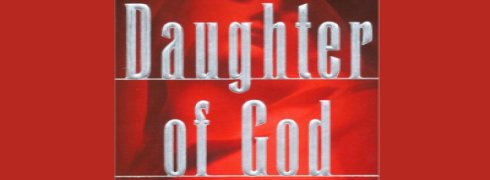God? Or No god?
I had a short Facebook conversation about God or no god Friday with my good friend Randy Liss (whom I killed in a most gory way in Amsterdam in my thriller, Zaibatsu.) Randy’s a mensch. Highly intelligent, good heart. Ethical, honest and proof that you can be all those things while also being an atheist. As you can tell, I like Randy and respect him very much. But I do not understand the leap of faith he as taken just as he cannot understand mine.
This whole issue of believing versus not believing has obsessed me since sometime in 1967 when I had a conversation with a friend during my freshman year at Ole Miss (not long before I got kicked out for leading a march. But that’s another story.”
My friend confessed that he was an atheist. A long conversation followed that can be concentrated into two sentences:
Me: “Well, where did everything come from? Why is there something rather than nothing?”
He: “It just always existed.”
There are a number of philosophical arguments for the existence of God. The one I made is known as “First Cause” and is a cosmological argument.
There is, of course, no way for either side of this argument to “prove” their side.
But I wrestled with the notion for years. I went through several years as a confirmed agnostic: I didn’t believe God existed but I didn’t believe God did not exist. That motivated me to take course after course in college on comparative religions, the philosophy of religion and to read extensively outside of formal classes. And introspection. Lots and lots of introspection.
On the one side, a chasm separating me from believing in God. On the other side, a chasm from firm belief there was no god.
As an agnostic, I hop-scotched that chasm more times than I can count. No matter how I made my leap of faith, I was never comfortable where I landed.
The faith journeys that involved instilled a distrust of religions as institutionalized political power organizations that evolved more to nourish a theological bureaucracy than the spiritual needs of followers. I also learned to be wary of “True Believers” of any sort.”True Belief” of the most extreme sort breeds a narrow tunnel vision, intolerance, and ignorance of the broader world.
Decades of testing what I believed in finally made me more comfortable leaping the chasm toward believing in God and staying there.
It also made me believe that blind faith of any sort is no faith at all, just blind.
Genuine belief — I have some to believe — requires testing and earnest introspection. And should not stop just because the leap has landed in a comfortable place whether that is God or no god. Being too comfortable in one’s leap of faith makes one intolerant of other beliefs and faiths. Intolerance prevents understanding and empathy.
I first wrote deeply about all this in my 1985 thriller The Linz Testament. But, in my heart, that effort fell short. So, I tossed about two-thirds of The Linz Testament, kept the pieces that mattered most, and wrote another thriller around it — Daughter of God which was so thoroughly plagiarized by The Da Vinci Code.
Readers of both will find parts that are the same. And even more parts that are different.
I have continued to explore faith since then. Yes, I try to write good thrillers with a lot of action, but I try to make my characters human through their own struggles with the life-and-death situations that confront them.
And nothing focuses your attention like impending death.
Perfect Killer explores the roots of consciousness and faith.
Die By Wire looks at evil and the loss of faith that can create.
I’ll continue to explore faith in future books.
And I’ll hope that my readers come away with empathy for those who believe differently and a genuine desire to understand and respect rather than demonize or evangelize.
Book Links:
Descriptions of all my books are on my web site here: Lew’s Books.
Kindle versions are here:


